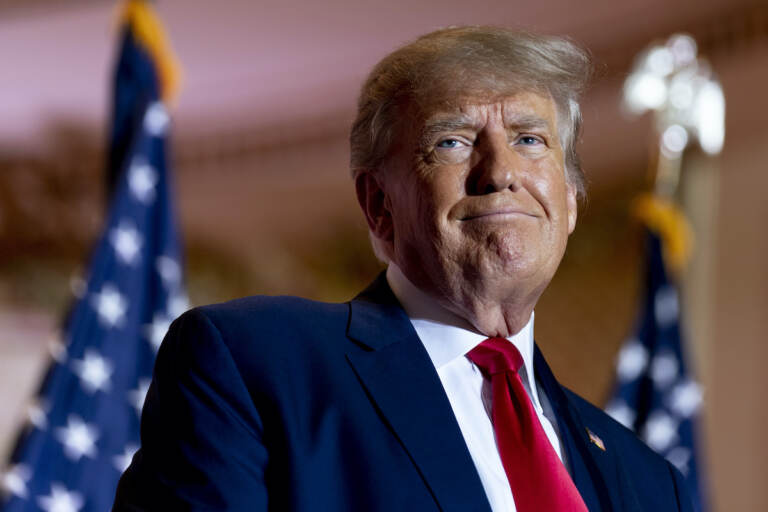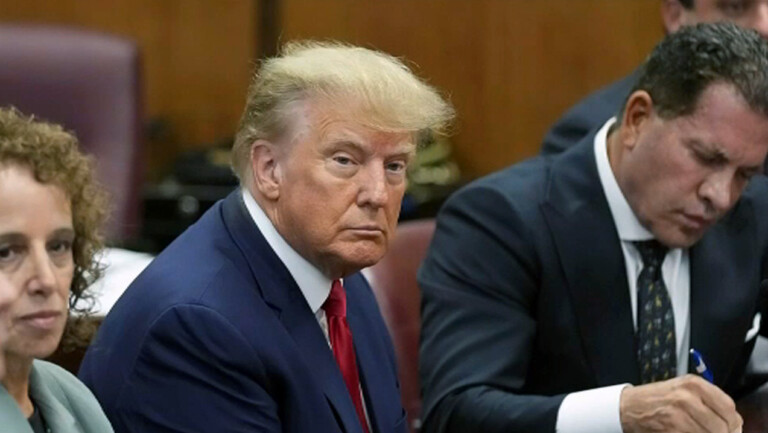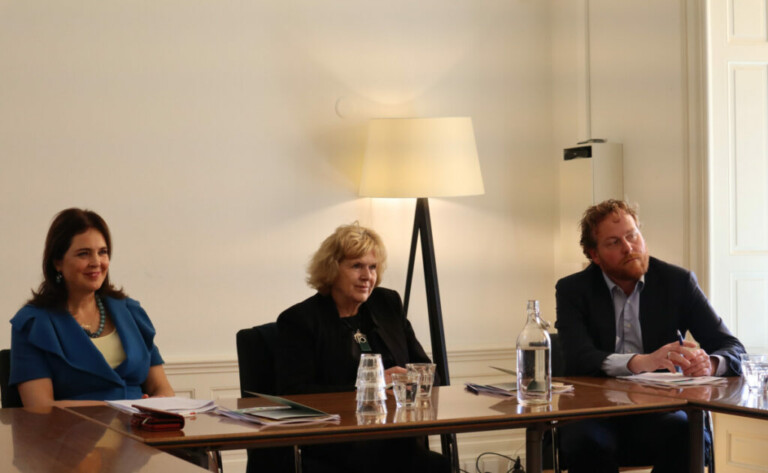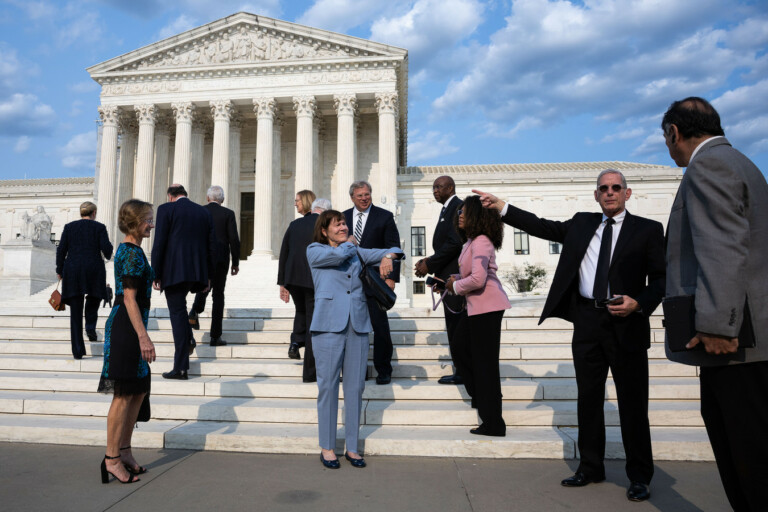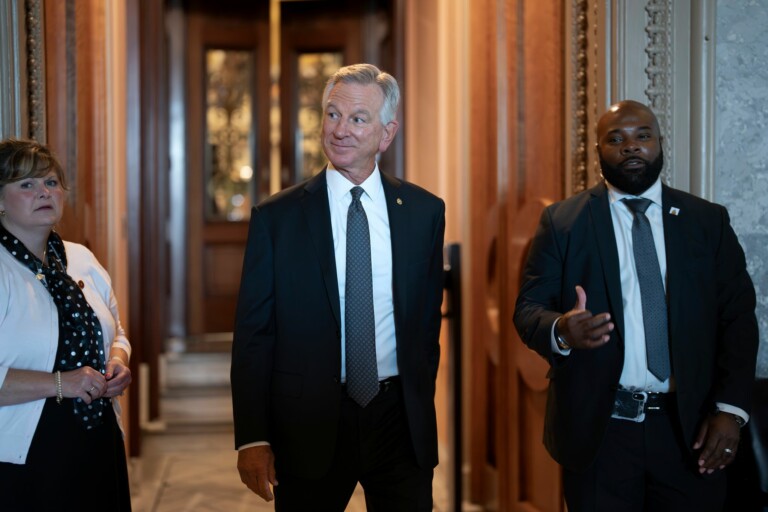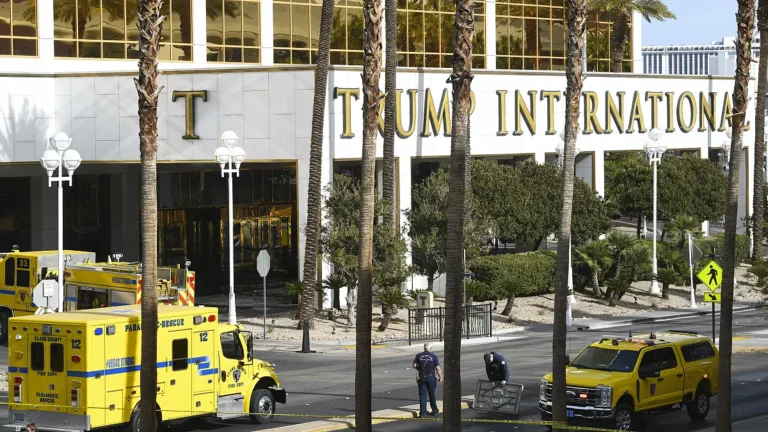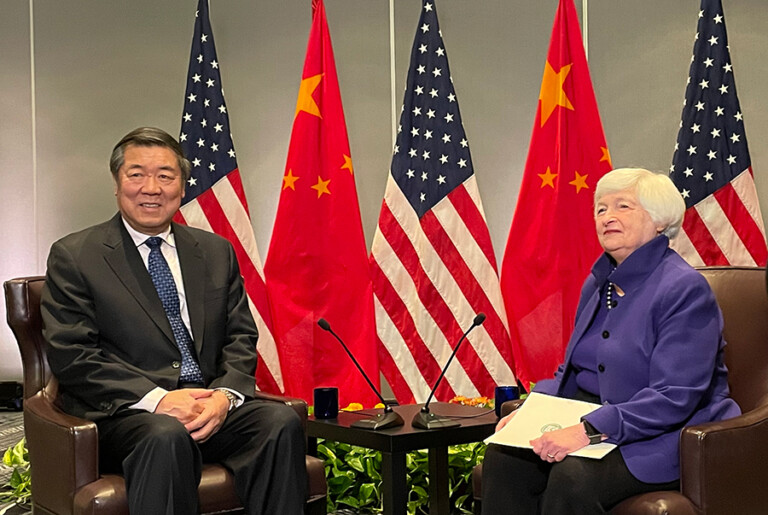A federal grand jury indicted former President Donald Trump on four criminal counts related to what they say were efforts to overturn the results of his 2020 election loss and incite a violent insurrection at the Capitol.
The extraordinary development marks the first time a former president has been charged with attempting to use the levers of power to subvert the democratic process in America – an event made more extraordinary by the fact that Trump is the current front-runner for the 2024 Republican presidential nomination.
Prosecutors say Trump and six unindicted co-conspirators worked together to sow public doubt in the 2020 election results, repeatedly made statements about election fraud that they knew to be false, and attempted to overturn the results of the election through five broad efforts outlined in the document.
The indictment is a steep escalation of Trump’s mounting legal issues. It is the second indictment of the ex-president stemming from investigations helmed by Justice Department special counsel Jack Smith – who in addition to leading the investigation into 2020 election interference also led the probe into Trump’s mishandling of classified documents after he left office. Trump was indicted last month in connection with that investigation, becoming the first ex-president to face federal criminal charges.
In a short statement delivered Tuesday after the indictment had been unsealed, Smith called the Jan. 6, 2021, insurrection “an unprecedented assault on the seat of American democracy.”
“As described in the indictment, it was fueled by lies,” Smith said. He also praised the Capitol Police officers who responded to the insurrection.
Trump is being charged with one count of conspiracy to defraud the United States, one count of conspiracy to obstruct an official proceeding, one count of obstruction of and attempt to obstruct an official proceeding, and one count of conspiracy against rights.
The 45-page indictment emphasizes over and over again that Trump knowingly made claims that were false. It is replete with examples of close advisers, political allies, Justice Department officials, state government workers, and White House staffers telling the former president that his claims were unfounded and untrue.
Some of those same people also advised Trump and his co-conspirators that efforts to subvert the results were improper, the document says. And it purports to identify several instances where Trump himself alludes to knowing that his plans were based on falsities.
“Despite having lost, the Defendant was determined to remain in power,” the indictment states. “So for more than two months following election day on November 3, 2020, the Defendant spread lies that there had been outcome-determinative fraud in the election and that he had actually won. These claims were false and the Defendant knew they were false. But the defendant repeated and widely disseminated them anyway – to make his knowingly false claims appear legitimate, create an intense national atmosphere of mistrust and anger, and erode public faith in the administration of the election.”
The indictment acknowledges Trump’s right to speak publicly about the election and to perpetuate his claims. But it says that Trump also “pursued unlawful means of discounting legitimate votes and subverting the election results.”
“Each of these conspiracies – which built on the widespread mistrust the Defendant was creating through pervasive and destabilizing lies about election fraud – targeted a bedrock function of the United States federal government: the nation’s process of collecting, counting, and certifying the results of the presidential election (‘the federal government function’),” the indictment says.
The indictment lists six co-conspirators, but Trump is the only defendant named.
It focuses on five broad efforts by Trump and his allies to disrupt the transfer of power. In the first, the indictment details attempts by the former president and co-conspirators to persuade state officials in Arizona, Georgia, Michigan, Pennsylvania and Wisconsin to ignore popular vote counts, dismiss legitimate electors and “disenfranchise millions of voters.”
In a related effort, Trump and his allies also concocted and hatched a plan for Republicans in seven key states to declare themselves alternate electors and submit fraudulent votes for Trump – which were then transmitted to Vice President Mike Pence and other government officials. The so-called fake elector plot is said to have been a focus of the investigation for months and has also been the source of state-level scrutiny. Last month, Michigan charged 16 people involved in the scheme in the state.
The indictment also details actions by Trump and allies to attempt to persuade Justice Department officials to tell states that evidence of voter fraud had been found, despite having no such evidence. Top Justice Department officials refused to do so.
“When the Acting Attorney General told the Defendant that the Justice Department could not and would not change the outcome of the election, Defendant responded, ‘Just say that the election was corrupt and leave the rest to me and the Republican congressmen,’” the indictment says.
The indictment also details repeated efforts by Trump to convince Pence not to certify the electoral vote count on Jan. 6 – despite multiple warnings from counsel and Pence himself that the vice president had no such authorities – as well as continued efforts by Trump and others to convince sitting members of Congress not to certify the election results even in the wake of violence that rocked the Capitol.
The indictment was returned just after 5 p.m. Tuesday, shortly after Trump warned in a social media statement that he was expecting charges imminently.
“I hear that Deranged Jack Smith, in order to interfere with the Presidential Election of 2024, will be putting out yet another Fake Indictment of your favorite President, me, at 5:00 P.M. Why didn’t they do this 2.5 years ago? Why did they wait so long? Because they wanted to put it right in the middle of my campaign. Prosecutorial Misconduct!” he wrote on his social media site, Truth Social.
In a statement, Trump’s campaign compared Smith’s investigation into Trump to Nazi Germany.
The D.C.-based grand jury has been hearing evidence in the election interference probe for months and charges have been widely expected for weeks. Trump received a so-called target letter from prosecutors in mid-July informing him that he was the subject of an ongoing criminal investigation – a move that frequently precedes criminal charges. Trump’s legal team also met with Justice Department prosecutors last month in Washington, a last-minute step that typically signals a looming indictment.
Attorney General Merrick Garland tapped Smith to lead the probe in November. The investigation came on the heels of an extensive, 18-month investigation into the insurrection by a congressional committee that involved televised hearings, interviews with scores of witnesses and reams of documents. Much of that evidence was given to the Justice Department by the committee.
The House select committee investigating Jan. 6 ultimately concluded that Trump was the “central cause” of the insurrection and recommended four criminal charges against Trump, which it referred to the Justice Department – a largely symbolic step that does not require action on behalf of DOJ officials.
Trump has continued to promote the lie that the 2020 election was “rigged,” in turns proclaiming his innocence of any wrongdoing and justifying his actions by insisting that the election was stolen from him. There is no evidence of any widespread fraud during the 2020 election.
The grand jury in the case has heard testimony from high-level White House officials and some of Trump’s closest and most senior allies, including former Vice President Mike Pence and Trump’s former chief of staff Mark Meadows.
Republicans have been generally dismissive of the investigation, concurring with Trump’s assessment of the probe as a political “witch hunt.”
But the charges still threaten to rattle the 2024 GOP presidential primary. Trump is now facing, in total, 44 counts of federal criminal charges.
The ex-president pleaded not guilty last month to 37 counts related to the classified documents investigation. Prosecutors in that probe say Trump improperly held onto sensitive national security documents at his Mar-a-Lago home, stored the documents in places accessible to the public, showed classified materials to people who did not have clearance to see them and, in collaboration with co-defendant and longtime aid Walt Nauta, carried out a plan to willfully defy a subpoena seeking the return of classified materials.
Last week, Smith filed additional three charges against Trump and charged a third defendant in the case, accusing the men of conspiring to delete surveillance footage that authorities requested. The classified documents case is scheduled to go to trial in May, after state Republican primary contests but before the 2024 election, though delays are common in complex federal trials.
More legal trouble also looms in Georgia, where Fulton County District Attorney Fani Willis is expected to soon announce whether she is bringing charges involving Trump in an investigation into efforts to overturn the 2020 election there.
And the former president is also facing a number of state criminal charges in New York connected with a hush money scheme involving the 2016 election and payments to a porn star.

